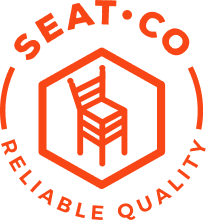How Financing and the Amortization Charts Can Propel Your Success
Why Opt for Credit? The Benefits Unveiled
Written by: Marcelo Flores
Download our Free Loan Amortization Calculator, designed for the Rental Industry!
In the world of event planning and rentals, having the right strategy and tools can make all the difference. While financing is a common practice in the United States, many in the event industry hesitate to take this step, often due to concerns about financial commitments and uncertainties about ROI. This article aims to demystify financing in the event industry and introduce you to a practical tool: an amortization table that can help you make informed decisions about your investments.
Table of Contents
1. Understanding Financing in the Event Industry
2. The Importance of Having a Defined Strategy
3. The Role of an Amortization Table
4. Use of ROI in Event Rental Financing
5. Invest Smart: Navigating Event Industry Financing
1. Understanding Financing in the Event Industry: The Power of Credit

Embarking on an event rental business journey or looking to expand your existing inventory? One of the key decisions you’ll face is how to finance your equipment purchases. Loans can be a strategic option, offering a pathway to acquire high-quality products without the immediate financial strain. Let’s delve into how loans can be effectively utilized for purchasing equipment in the event rental business.
The Concept of Loans for Furniture Acquisition
Loans are a traditional form of financing where you borrow a specific amount of money from a lender, which is then paid back with interest over an agreed period. This financial tool is particularly useful for significant purchases like bulk buying chairs for your event business.
When you opt for a loan, you get immediate access to the funds you need to make substantial purchases. This means you can invest in quality products that appeal to your clientele, enhancing your service offerings and potentially increasing your market share. The key advantage here is the ability to make a large purchase upfront, which is often necessary in this industry to meet client demands or to capitalize on bulk purchase discounts.
Why Opt for Credit?
- Rapid Inventory Expansion: Loans provide the capital needed to expand your inventory immediately. This is crucial in the event industry, where having a diverse and ample supply of items can set you apart from competitors.
- Cash Flow Management: By using a loan, you can preserve your working capital for other operational expenses. This is especially beneficial in managing the cyclical nature of the event industry, where cash flow can fluctuate.
- Access to Quality Equipment: With the financial backing of a loan, you’re not limited by immediate budget constraints. This allows you to invest in higher-quality equipment that offer better durability, aesthetics, and customer satisfaction.
- Building Credit History: Regularly paying off a business loan on time can help build your company’s credit history, which can be beneficial for future financial endeavors.
2. The Importance of Having a Defined Strategy

While financing is a powerful tool for growing your event rental business, its effectiveness is significantly enhanced by a well-defined business strategy. If you’re already in the business and you have a “security” that you host or rent every week then this could be a great tool for you. But if you’re new in the business, even though this is a very profitable business, you should have a defined strategy because you’ll have a debt you’ll need to pay back.
And you don’t need an exorbitant amount of events per month to be able to repay the loan, you will be able to pay for it pretty quickly.
Elements of a Strong Strategy:
- Market and Competition Analysis: Understanding your target market, including the types of events you cater to, customer preferences, and competition in your area is crucial. This knowledge helps in selecting the right furniture that appeals to your clientele and ensures a higher rental rate.
- Financial Planning: A thorough financial plan outlines your budget, expected income, and expenses. It helps in determining the affordability of loan repayments and ensures that the loan doesn’t strain your business finances.
- ROI Calculation: Calculating the expected ROI from your equipment investment is vital. This includes considering the rental rate, frequency of events, and the lifespan of the equipment. A high ROI indicates that the loan will be a profitable investment for your business.
- Growth Projections: Your strategy should include short-term and long-term growth projections.
It is super important that you calculate the ROI and durability of the product you are quoting, you don’t want the item to be damaged or broken before you finish paying off the loan. Click here to understand more about ROI and to be able to calculate it for all your future purchases.
Implementing the Strategy:
Once you have a defined strategy, implementing it becomes more straightforward. It guides your furniture selection, the amount of financing required, and the type of loan that best suits your needs. A well-implemented strategy ensures that every investment, including the loan, contributes to the growth and success of your business.
So having a well-defined strategy is essential when considering financing for your event rental business. It ensures that the loan you choose aligns with your business goals, market needs, and financial capabilities. Click here to better understand how to create the best strategy before purchasing chairs.
3. The Role of an Amortization Table

An amortization table is crucial when considering financing for your event rental business. In this section you’ll understand why it is so important and how it can help your business.
Understanding Amortization Tables:
An amortization table is essentially a detailed schedule of your loan payments. It lists each payment due date, the amount of each payment, and how that payment is split between the principal (the original amount borrowed) and the interest (the cost of borrowing money). As you move down the table, you’ll notice that the portion of your payment going towards the principal increases, while the interest portion decreases. This is because as you pay off the principal, there’s less of it to accrue interest.
Applying it to Your Business
- Comparing Loan Options: Use the table to compare different loan scenarios. How does a longer-term loan compare to a shorter one in terms of total interest paid? What about different interest rates?
- Strategic Repayment: Maybe there are times in the year when your business has more cash flow and can afford to make extra payments. The amortization table can help you plan these strategically to reduce interest costs.
- Cash Flow Alignment: By understanding your repayment schedule, you can align it with your business’s cash flow. This is crucial for maintaining a healthy financial balance in your business.
The amortization table is a strategic tool that, when used wisely, can save you money and help you manage your loan in a way that aligns with your business’s financial health. In the event rental industry, where cash flow can be seasonal and unpredictable, having this level of control and foresight is invaluable.
4. Use of ROI in Event Rental Financing

ROI, or Return on Investment, is a critical metric in any business, but it becomes particularly significant when dealing with event rental financing. Understanding and effectively utilizing ROI can transform the way you approach investments, especially when it comes to purchasing your equipment on finance. Let’s see how it works.
Understanding ROI in the Context of Event Rentals
ROI is a measure of the profitability of an investment. In the context of event rentals, it’s about understanding how much profit your purchased items will generate compared to the cost of acquiring them.
The basic formula to figure out ROI is: ROI:
(Net Profit / Total Investment) x 100
But for party rentals it is a little more complex. The American Rental Association created a special formula made for the rental industry. Here’s how you calculate rROIC (Rental Return on Invested Capital):
(Rental Rate x Utilization) – (Maintenance + Repair Costs) ÷ (Acquisition Cost – Residual Value) = rROIC
This formula considers not just how much you’re making, but also how often the equipment is being used and what it costs to maintain it. To better understand and take full advantage of this tool you can click here.
Why ROI Matters
ROI and durability is key for purchasing equipment and of course when using financing. Imagine that your chairs break and you still have several months to pay, how are you going to finance those payments if you no longer have any chairs? It is very important that they last for many years, so that after paying off the loan they will continue to give you benefits for many more years.
Informed Purchasing Decisions: Knowing the potential ROI on products helps you make smarter purchasing decisions. It’s not just about the upfront cost; it’s about the long-term return.
Comparing Options: ROI allows you to compare different financing options or types of products. You might find that a more expensive item has a higher ROI due to durability, appeal, or demand.
Strategic Planning: Understanding the ROI of your current inventory can guide future purchases and business growth strategies. It helps in identifying which types of furniture are most profitable and should be prioritized.
Maximizing ROI in Your Business
- Quality Over Quantity: Sometimes, investing in higher-quality products that command a higher rental fee can lead to a better ROI, even if the initial cost is higher.
- Target Market Alignment: Align your equipment choices with your target market’s preferences. Equipment that is in high demand for your specific clientele can yield a higher ROI.
- Maintenance and Longevity: Consider the maintenance cost and longevity of the items. Durable, low-maintenance items may offer a better ROI by reducing ongoing costs.
The Role of Financing in ROI
Financing plays a crucial role in ROI. It allows you to acquire more or better-quality equipment than you might afford upfront, potentially increasing your ROI. However, it’s important to factor in the cost of financing when calculating ROI. The interest and fees associated with a loan can impact the overall profitability of your investment.
5. Invest Smart: Navigating Event Industry Financing

Remember, investing in your business is a significant decision, and that is why the use of these tools is so important, so that you can achieve the expected results in a much simpler way.
To wrap it all up, in this last section we’ll explore how to invest smartly, ensuring that every financial decision you make contributes positively to the growth and sustainability of your event rental venture.
Strategic Investment in Event Rentals
- Understand Your Business Needs: Before diving into financing, have a clear understanding of what your business needs. Are you expanding your inventory, upgrading existing pieces, or branching into a new market segment? Your investment should align with your business goals.
- Research and Select Quality Products: In the event rental industry, the quality of your inventory can make or break your reputation. Invest in products that are durable, aesthetically pleasing, and in demand. Remember, higher quality often translates to higher rental rates and better ROI.
Consider the Long-Term Impact: Every investment decision should be made with an eye on the future. How will this investment affect your business in the long run? Will it open up new opportunities or markets? Always weigh the immediate benefits against the long-term gains.
Smart Financing for Event Rentals
- Choose the Right Financing Partner: Not all financing options are created equal. Look for financial partners who understand the event rental industry and can offer terms that suit your business model.
- Read the Fine Print: Be aware of interest rates, repayment terms, and any hidden fees associated with your financing option. These factors will affect your overall cost and, consequently, your ROI.
- Balance Borrowing with Earning Potential: Borrow responsibly. Ensure that the amount you’re financing aligns with your business’s earning potential. Overborrowing can lead to financial strain, while underborrowing might mean missed opportunities.
Leveraging Financing Tools
- Use Financial Calculators: Tools like the amortization table and ROI calculators can be invaluable. They help you understand the financial implications of your investment and how it fits into your overall business strategy.
- Plan for Repayment: When you take on financing, have a clear plan for repayment. Consider how the additional inventory will generate the necessary revenue and how it fits into your cash flow management.
- Monitor and Adjust: Keep a close eye on how your investment is performing. Be prepared to adjust your strategy if the expected ROI isn’t being met. This might mean tweaking your rental rates, targeting different markets, or even reconsidering your inventory mix.
By understanding your needs, choosing quality products, selecting the right financing options, and leveraging financial tools, you can ensure that your investments contribute to the growth and success of your business.
Stepping into the event rental business with a financing plan is an important step toward growth and stability. Understanding the ins and outs of loans and effectively utilizing tools such as amortization tables are critical in this journey.
Remember to download our Free Loan Amortization Calculator: Eliminate Guesswork & Maximize Your Rental Returns!
The amortization table is an indispensable tool in this process. It doesn’t just break down the payment schedule, but provides a clear and detailed view of how each payment contributes to reducing principal and interest over time. This clarity is crucial for long-term financial planning.
The event industry has a huge income potential and by using the right tools you can take full advantage and skyrocket your business.









